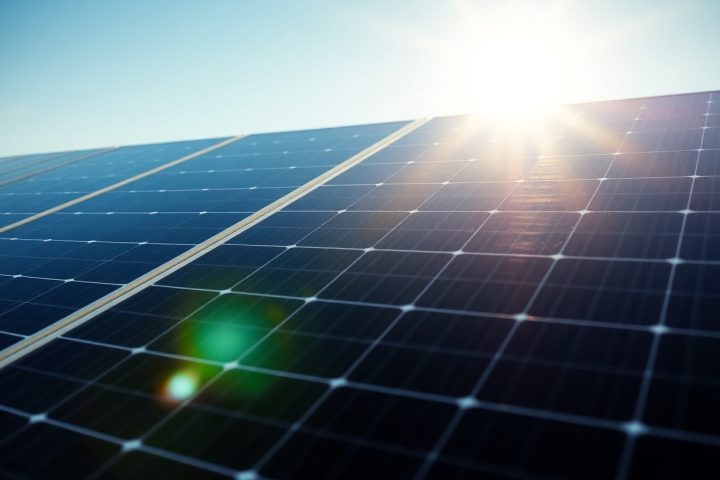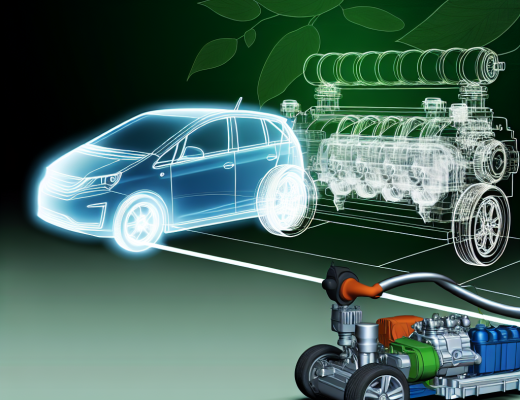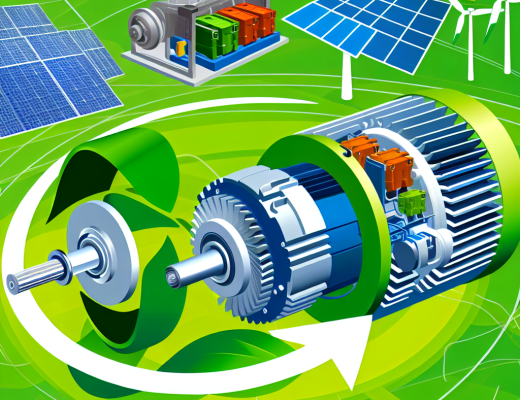Energy from the sun is harnessed through solar panels, converting sunlight into electricity that you can use in your home or business. Understanding how solar energy works can empower you to make informed decisions about capturing this renewable resource for your energy needs. In this post, you’ll learn about the fundamental principles of solar energy generation, including the technology behind photovoltaic cells and the processes that transform sunlight into usable power. Let’s probe into the basics of how you can benefit from solar energy and contribute to a sustainable future.
The Science of Solar Energy
While many understand solar energy as a renewable resource, it’s necessary to grasp the science behind it. Solar energy harnesses sunlight, converting it into usable electricity through different technologies. These methods rely on fundamental principles of physics and chemistry, allowing you to take advantage of one of the most abundant resources on Earth. By understanding how solar energy works, you can make informed decisions about adopting this clean energy source for your own needs.
Photovoltaic Effect
To generate electricity directly from sunlight, solar panels utilize the photovoltaic effect. This process occurs when sunlight strikes the solar cells, exciting electrons and creating an electrical current. You can benefit from this technology by installing solar panels, ultimately reducing your reliance on conventional energy sources and lessening your carbon footprint.
Solar Thermal Energy
About another method of harnessing solar energy involves solar thermal systems. These systems use sunlight to heat a fluid, which then generates electricity or provides direct heating. By incorporating solar thermal technology into your energy strategy, you can achieve a more efficient, eco-friendly solution for your heating needs.
The focus of solar thermal energy is to capture and convert sunlight into heat rather than electricity. This can be done through solar collectors that absorb sunlight and transfer the heat to a fluid, which is then used to produce steam and drive turbines. You can use solar thermal systems for various applications, such as heating water for domestic use or providing heat to commercial buildings. By harnessing solar thermal energy, you can limit your dependence on fossil fuels while also enjoying reduced energy costs.
Components of Solar Energy Systems
One of the primary advantages of solar energy systems lies in their various components, which work collaboratively to convert sunlight into usable electricity. Understanding these components, such as solar panels, inverters, and battery storage, helps you grasp how solar energy operates and can benefit your energy needs.
Solar Panels
Before you can harness solar energy, you need solar panels. These panels capture sunlight and convert it into direct current (DC) electricity through photovoltaic (PV) cells. This step is important, as it is the first stage in generating clean energy for your home or business.
Inverters
About halfway through the process of generating solar energy, inverters come into play. They transform the generated DC electricity into alternating current (AC) electricity, which is the standard form of electricity used in most homes and buildings.
Understanding the role of inverters is important for maximizing your solar energy system’s efficiency. These devices not only convert electricity but also monitor performance, ensuring that your solar panels operate at optimal levels. High-quality inverters can increase your return on investment by enhancing energy yield and providing valuable data about your system’s performance.
Battery Storage
For many homeowners, battery storage serves as an integral component of their solar energy system. Batteries allow you to store excess electricity generated during the day for use during nighttime or cloudy days, increasing your energy independence.
For instance, a well-designed battery storage system can provide power during peak demand hours when electricity rates are higher, offering significant savings on your energy bills. Additionally, integrating battery storage with your solar panels can ensure a continuous power supply even during grid outages, thus enhancing your energy security and reliability.
Types of Solar Energy Systems
For anyone considering solar energy, understanding the different types of systems is crucial. The primary categories include:
- Grid-Tied Systems
- Off-Grid Systems
- Hybrid Systems
Perceiving the differences will help you choose the right system for your energy needs.
| System Type | Description |
|---|---|
| Grid-Tied Systems | Connected to the utility grid, these systems allow for energy exchange. |
| Off-Grid Systems | Stand-alone systems that operate independently from the utility grid. |
| Hybrid Systems | Combination of grid-tied and off-grid, offering flexibility in energy sources. |
| Battery Storage | Devices used to store solar energy for later use. |
| Smart Inverters | Devices that optimize the performance of solar energy systems. |
Grid-Tied Systems
By choosing a grid-tied system, you connect your solar panels directly to the local utility grid. This setup allows you to consume solar energy during the day and draw from the grid when needed, leading to cost savings and increased energy security.
Off-Grid Systems
Behind off-grid systems, you’ll find that they operate completely independently from traditional utility services. These systems utilize battery storage to provide electricity during periods without sunlight, making them ideal for remote locations.
To ensure a reliable power supply, off-grid systems require careful planning and installation of energy storage solutions. By investing in sufficient battery capacity and solar panels, you can power your home or business without relying on external energy sources.
Hybrid Systems
For those who want the best of both worlds, hybrid systems combine elements of grid-tied and off-grid systems. They allow you to store excess energy, ensuring a continuous supply even during outages.
OffGrid hybrid systems can adapt to various energy conditions, providing you with increased flexibility. This means you can switch between grid energy and stored solar energy, enhancing your energy independence and reliability during blackouts.
Benefits of Solar Energy
Your choice to embrace solar energy offers numerous advantages that extend beyond energy generation. By harnessing sunlight, you can reduce your electricity bills, increase your home’s value, and contribute to a sustainable future. Additionally, utilizing solar power can protect you from fluctuating energy prices and lessen your reliance on traditional fossil fuels. Adopting solar energy demonstrates a commitment to environmental stewardship and can provide significant financial incentives through government rebates and tax credits.
Environmental Impact
Impact studies consistently show that solar energy significantly lowers greenhouse gas emissions and helps combat climate change. Unlike fossil fuels, solar power generates electricity without releasing harmful pollutants or carbon dioxide into the atmosphere. By investing in solar technology, you can contribute to cleaner air quality and a healthier environment for future generations.
Economic Savings
Across many regions, solar energy users experience considerable savings on their energy bills, which can substantially improve your budget over time. As the initial investment in solar panels may be offset by local rebates and tax incentives, your long-term savings can accumulate significantly. With rising electricity costs, going solar can shield you from future price hikes.
It’s also necessary to note that many solar power systems require minimal maintenance, allowing you to save even more money in the long run. By producing your own electricity, you can decrease your reliance on grid power, further lowering monthly expenses. Plus, as technology advances and installations become more affordable, the payback period is shortened, making solar energy an appealing financial decision.
Energy Independence
After switching to solar energy, you gain greater control over your electricity source, reducing your dependence on external energy suppliers. With solar panels installed, you create your own power, enabling you to lock in energy costs and insulate yourself from market fluctuations or supply disruptions.
Environmental concerns play a significant role in enhancing your energy independence. By generating your own electricity, you can reduce strain on the grid and contribute to a more resilient energy system. Plus, during power outages, having a solar energy system paired with storage solutions can keep your home powered, offering you peace of mind in uncertain times.
Challenges and Limitations
Keep in mind that while solar energy presents many advantages, it also comes with challenges and limitations that can affect its implementation and efficiency. Understanding these barriers is vital for you as you consider the transition to solar energy for your home or business.
Initial Costs
Behind the allure of solar energy lies the reality of initial costs, which can be significant. While prices have decreased over the years, the upfront investment for solar panels, inverters, and installation may still be a barrier for many homeowners.
Weather Dependence
With solar energy generation heavily reliant on sunny weather, your energy output can fluctuate significantly based on weather conditions. This factor makes solar power less predictable than traditional energy sources.
For instance, during cloudy days or rainy seasons, you may find that your solar panels generate substantially less energy, leading to reliance on alternative power sources. This variability can affect your energy savings and force you to consider energy storage solutions, like batteries, to maintain a consistent power supply during less favorable weather conditions.
Space Requirements
Limitations in space can pose challenges for solar energy installations, as you will need sufficient rooftop or land area to accommodate solar panels. Not every property has the ideal space to maximize solar energy generation.
Indeed, the amount of space required for adequate solar panel installation depends on your energy needs and the efficiency of the panels you choose. If your property lacks sufficient area or has obstacles such as shading from trees or buildings, you may not harness enough sunlight to make the investment worthwhile, requiring you to explore alternative energy solutions or larger-scale installations.
Future of Solar Energy
Not only is solar energy experiencing remarkable growth, but it is also positioned to play a significant role in the global energy transition. With advancements in technology and increasing adoption in various sectors, you will likely see solar power becoming more efficient, accessible, and integrated into your daily life in the coming years.
Technological Innovations
Before submerging into the future, it’s important to recognize the technological innovations that are continually shaping solar energy. You may observe the development of more efficient solar photovoltaic cells, energy storage solutions, and smart grid systems that optimize energy distribution, making solar power more reliable and cost-effective for everyone.
Policy and Market Trends
Beside technological advancements, policies and market trends are also shaping the future of solar energy. You will see stronger government incentives, subsidies, and international agreements aimed at promoting renewable energy adoption, which further solidify solar’s place in the energy market.
Market trends indicate an increasing investment in renewable energy, particularly solar, driven by both consumer demand for sustainable options and corporate commitments to reduce carbon emissions. You might notice many companies transitioning to solar power, which not only lowers their energy costs but also enhances their brand image. Additionally, community solar projects are gaining traction, allowing you to invest in solar energy even if you lack suitable roof space, thereby expanding access to clean energy solutions.
Conclusion
Summing up, understanding how solar energy works empowers you to make informed decisions about harnessing this sustainable power source. By utilizing photovoltaic cells or solar thermal systems, you can convert sunlight into usable electricity, reducing your reliance on fossil fuels. With advancements in technology, solar energy continues to become more efficient and accessible, allowing you to contribute to a cleaner environment while potentially saving on energy costs. Embracing solar energy not only benefits you but also promotes a sustainable future for generations to come.




